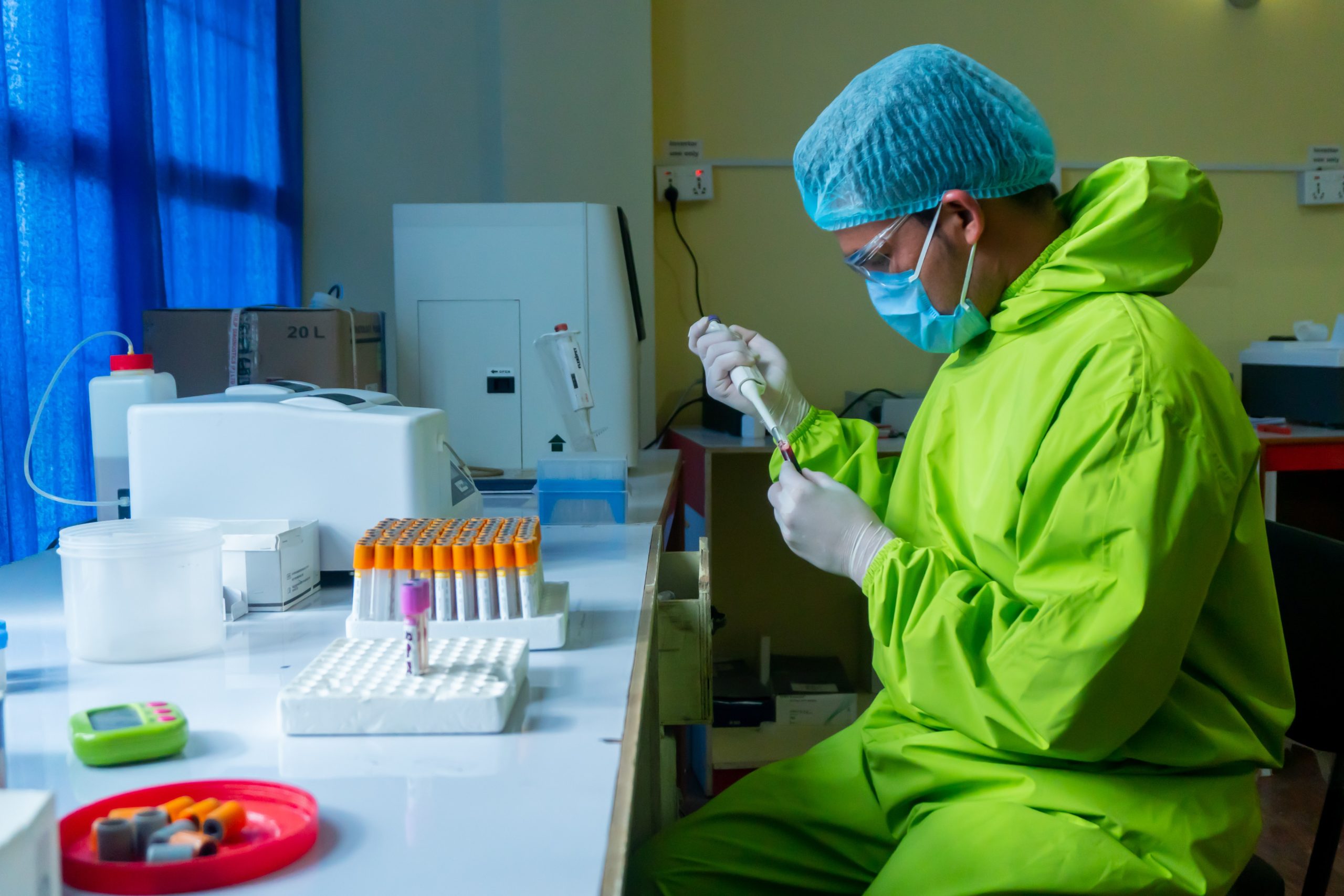29 July, 2022
As the COVID-19 global research funding response has hit a plateau, the Living Mapping Review (LMR) continues to provide valuable information for the international community of researchers and funders. The latest and sixth iteration of the LMR is the first to include an in-depth analysis of existing research into new COVID-19 variants. Together with the associated COVID-19 Research Project Tracker – one of the most comprehensive resources on COVID-19 research worldwide – the LMR helps funnel resources where research needs are greatest.

Now available on Wellcome Open Research, the July 2022 Living Mapping Review of COVID-19 funded research projects has been updated based on data from UKCDR and GloPID-R’s Covid-19 Research Project Tracker, which the WHO has described as “instrumental in reaching global funding decisions.”
The LMR is regularly updated to allow the research funding community to understand current research trends and identify gaps and opportunities for a more comprehensive and effective pandemic response. Mapping projects against both the WHO Coordinated Global Research Roadmap (2019) and UN Research Roadmap for COVID-19 Recovery (2020) allows the LMR to identify historic and current research trends while highlighting future opportunities.
This sixth iteration of the LMR corresponds to Tracker data from October 2021. The analysis looks at 13,484 projects, spanning 285 research funders based in 53 countries, representing an investment of at least 5.1 billion USD. It shows a continued expansion of both funding and capture of funding across the global funding landscape in the Tracker, including for projects taking place in low and middle-income countries (LMICs). As noted in the previous iteration, there is a clear plateauing of the COVID-19 funding response. It is therefore vital that researchers, funders, and policymakers engage with the LMR and the data it captures (accessible from the Tracker) to ensure that resources are directed to areas of continued unmet research need.
On the topic of new COVID-19 variants, a fourth addition has been made to the LMR’s suite of thematic analyses. The LMR identified 78 COVID-19 research projects with a focus on new variants, supported by 25 funders and representing an investment of more than 34.75 million USD. The analysis found that these projects are concentrated in high-income and upper-middle income countries, while only five are taking place in lower-middle or low-income countries. This finding is significant given that LMICs are now disproportionately affected by the pandemic due to disparate global vaccination coverage, and several variants were first identified in LMICs. As new variants continue to emerge, further research on this topic will be critical to the pandemic response.
As funding for COVID-19 research around the globe levels off, the international research community must take stock of its achievements and opportunities for improvement. This will require enhanced coordination to minimise duplication and ensure that limited resources can reach areas of greatest need, including for new variants. This should be achieved with an emphasis on the local needs of LMIC contexts and alignment to evolving research priorities.
Related links
Through mapping and analysis we are able to tell the whole story of UK’s collective work to address global challenges – such as climate change, the built environment, antimicrobial resistance – through investing in research. For example, we recently mapped UK research funding in Kenya, Nigeria and South Africa.
Learn more: UKCDR, GloPID-R & COVID CIRCLE
UK Collaborative on Development Research (UKCDR) Global Research Collaboration for Infectious Disease Preparedness (GloPID-R) COVID CIRCLE We have also been bringing together UK research funders to support coordination of the UK research funding response to COVID-19.
Research roadmaps
WHO Coordinated Global Research Roadmap (2019) UN Research Recovery Roadmap (2020)
